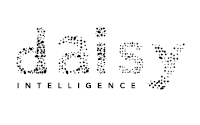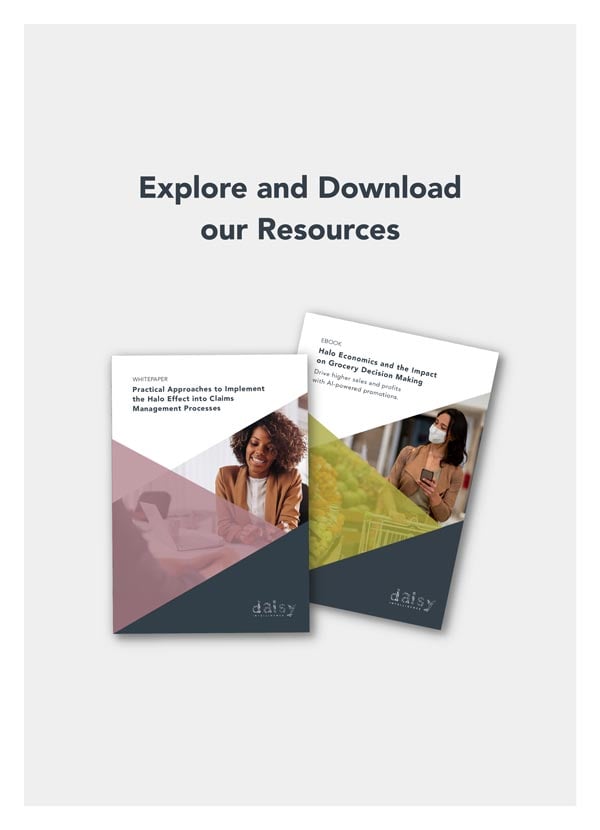
Gary Saarenvirta on the Enterprise Now! Podcast
 Daisy Intelligence
Daisy Intelligence
Daisy CEO Gary Saarenvirta sat down with Elzie Flenard to talk about what it takes to become a successful entrepreneur and how Daisy's artificial intelligence is changing how retailers and insurance companies are doing business.
Listen to the Enterprise NOW! Podcast
Enterprise NOW! Podcast Transcription
Are you a business owner or entrepreneur looking to take your business skills to the next level? then you're in the right place. Welcome to the Enterprise Now show. Prepare to be inspired, motivated, and transformed. And now, your host. Elzie Flenard.
About Gary Saarenvirta
Elzie: Can I get an oh yeah? What's up, enterprisers? Welcome to the enterprise now Podcast, where we educate, motivate, inspire, and transform business owners and entrepreneurs into success. That is what we do. We help folks launch, grow, and maximize. Gary Saarenvirta is founder and CEO of Daisy intelligence, a preeminent authority on artificial intelligence. The former head of IBM Canada's data mining and data warehousing practices, Gary is passionate about AI and its ability to transform how retailers grow their businesses and establish an edge in an increasingly challenging and competitive environment. Under Gary's leadership Daisy has established a track record of delivering verifiable financial outcomes for a rapidly growing list of global clients. Alright, let's dig in.
Elzie: All right. Can I get an oh yeah?
Gary: Oh yeah.
Elzie: Nice, nice. As we do every single week, first I want to say thank you for taking the time out. I know that you're very busy. And, you are actually not in your normal office, but you still found the time to share your experience and knowledge with us, so for that we say thank you.
Gary: Thanks very much for having me on the podcast, I always enjoy talking about business, and career, and entrepreneurship, so looking forward to this.
Elzie: The second thing I always like to follow up with is tell us about yourself. Now, when I say that I mean feel free to go all the way back to where it all started for Gary, or you can start at a more current day. Tell us about yourself.
Gary: Yeah, I grew up with European parents, so the big hard work ethic. And so, that's been always part of my DNA to kind of work hard. I found that drives success, world values, hard work, and results. And, I've always had a desire to change the world. And, I started out with going to university for aerospace engineering because I love planes, and rockets, and all things NASA, and still do. And, you know, when I finished grad school I started a software company with some friends of mine, and when I got exposed to large companies I was always thought as a youngster when you see big tall corporate offices and headquarters that wow these big companies must really be super sophisticated and have their act together, and in most ways they are, but I was really shocked how little math and science businesses use to make operating decisions. And, being an aerospace engineer and doing all this math and science, I kind of walked into this career opportunity accidentally to bring math and science to business, which I thought would help them operate smarter and make them even more profitable. Which, would, they would then reinvest those profits back into their business, to the lowering prices, and in doing so change the world. And, that's kind of been my mission for 25 years, kind of an accidental mission which is really helping companies make smarter decisions using math and science.
Elzie: Ok, now let's backtrack a little bit and learn a little bit more about you. What’s, what's your favorite thing to do?
Gary: My favorite thing to do. A couple things, I'm a huge tennis player, so I play a lot of tennis, as much as I can. I played competitively all my life, so that's one, you know, sports is a big thing. And then tennis is a big part of that. I also enjoy continual study, I mean, I read physics textbooks and science textbooks to this day, kind of gives me brain food to keep going forward, and I enjoy reading about business. I think, trying to figure out how to be a good CEO and a good leader and how to run business, those are kind of three areas of my life sports, science, and business.
Methodology and Keys to Success
Elzie: So, if you had to pick one, what would you say your superpower is?
Gary: Yeah, that’s a tough one. I think my superpower is a vision. I think I'm good at aligning people to a mission and a vision, and I think that, that desire to change the world and building a team around that, I think that's my superpower.
Elzie: One question that I always like to ask, because of the different answers that I get, is how do you overcome challenges? And I guess what I mean by that is, what's your methodology when you are presented with a problem or a challenge? How do you approach it?
Gary: Yeah, I'm very analytical, so I’ll think about it, I’ll ask lots of opinions from my team around me, whatever, if it’s a challenge at the shareholder or board level, I'll talk to the directors and my coaches. If it's a challenge in the company, I'll talk to my teammates my peers, my direct reports, and, ultimately, consider all opinions I'll think about it and make a decision and move forward. So, it's a team effort to collect information and then ultimately the decision is usually mine, as I’m CEO of the company, so I make the hard call. Sometimes I disagree with the input I get, sometimes I take the input I get, but always think about it carefully, weigh the facts, and then go forward with the best of your ability.
Elzie: If you had to give your top, let’s say two, what would your keys to success be?
Gary: I think perseverance is, is very important, and sticking to your vision. I think that, I think persevering over the long haul. And, I was at a talk given by Khosla from Khosla Ventures, and he said you need to survive long enough to have luck fall on your side. So, I think that perseverance has been a great strength of mine, and then the passion. I just love what I do, and sharing passion and being real and true, sharing your true feelings, I think that is very engaging to customers and investors and
employees. So, I think perseverance and then complete transparency and honesty and being real. I think those are the two secrets to being successful.
Elzie: So, I'm curious to know what made you want to start your own company? You mentioned that you went to school for aerospace engineering, but touch on it a little bit. What was the spark that said, I want to do this on my own?
Gary: Yeah, I came up with a mission that I thought, I, you know, I worked at IBM in my past life. I ran IBM’s data mining and data warehousing practice in Canada, I was one of their go to global people for high end analytics engagements, and I worked at a company called Loyalty Group prior to that, so think I had gotten enough, as an engineer you don't get much business training. So, my two significant corporate experiences I learned a lot about corporate finance and business. And, then I really felt I had all the skills. I always was trying to, you know, be the intrapreneur inside of companies trying to launch businesses inside of companies, but I think once I got to the point where I realized I had all the skills I needed from a business round out, then I thought, okay, I need to do this myself. I have a mission, and a vision that I believe in, and I need to go out there and make it happen.
Intrapreneurship
Elzie: Talk about intrapreneurship a little bit more. I know it's a term that some people are throwing around and it's getting more and more popularity, but go into detail, what is an intrapreneur?
Gary: I think if you work for a corporation or another business, I think the idea is trying to start a business inside of a company. So, it's not your business. So, it will be a new business unit, or, or a new process. So, it's, it's taking those entrepreneurial skills and applying them within somebody else's company. I think that's a lower risk way to start because you're still getting a salary or gainfully employed, and it helps you practice your sales skills internally, getting permission. So, it's really either that, you're running a business inside of an existing company. And, I think it’s under looked, I think a lot of young people are in such a rush to go start a company without really having the requisite skills. I can say the most valuable thing I did was work at two corporations and gain all that valuable experience. And, I actually started a business unit in both of the companies I was in, and that was, kind of, great training ground for me to, to, you know, to found Daisy.
What is Required to Run a Company and to be an Intrapreneur?
Elzie: Got it. So, talk a little bit more about that. You mentioned that a lot of people are in a rush, and they don't have the skills and experience needed to, to effectively and successfully run a company. What are some of those skills and experiences?
Gary: Yeah, I think a lot of, I think there's so much hype about, you know, starting a business and becoming a unicorn, and these things don't happen overnight. There's a one in a million, even smaller than that, one in a billion businesses become like a Facebook or something like that, and that takes years. And, I think some of the kids come out of school, if you're a technical person, like with a degree in engineering, you probably lack the business know how to do corporate finance and cash flow management and sales skills. And, I think if you don't have the requisite skills, either yourself, or even if you build a team of other recent graduates or business graduate, there's just so much to running a business that I think it's dangerous to start too soon. You get taken advantage of by investors out there who take advantage of the lack of knowledge. I think not being in a huge rush. I think anything great takes a lot of effort and it's not gonna happen overnight. So, learning about finance, having a job or two, looking at what other corporations are like, I think that's the, kind of, patient approach. And then, once you're ready, then going out and launching the skills with the, you know, with the more, launching a business with a more rounded set of skills to me seems the prudent choice. I see a lot of youngsters starting companies and really failing, you know, several times, and I imagine that would be very demoralizing.
Elzie: Yeah. So, talking about that a little bit more, what mindset, kind of a twofold question, what mindset does one need to have in order to be an effective intrapreneur? And secondarily, how do you know when you're ready? So again, two parts. How do you shift your mindset to be an intrapreneur? And secondarily, how you know when you're ready to step out?
Gary: I think being an intrapreneur, I think you start out with a mission and a vision, and you probably use, you assemble that into the company. And, I think if you're able to sell a mission or vision like that inside a business, that's a good proving ground that you have some of the right skills. And so, if you're not able to convince the company to embark on a new business, or a new project, or a new process, I think then that's the message that those are valuable skills. You need to have to be able to sell your ideas to senior businesspeople who are willing to fund the idea. For an intrapreneur your, your executives will fund your idea. Outside entrepreneurs, investors will fund your idea. So, I think the ability to have some success in being an intrapreneur, and then understanding some of the key financial aspects. I think once you have, I think those two elements, I think that's the starting point to be confident to, you know, to go out and have a reasonable shot at success.
About Daisy
Elzie: Awesome. So, we've learned a little bit about you, your background, and you've given us what I call some golden nuggets on intrapreneurship, mindset, applying, taking the entrepreneurial skill set and applying it to a corporation. We've talked a little bit about the experience needed to run a successful company. Tell us a little bit about Daisy, what do you guys do?
Gary: At Daisy we're an AI platform and we help clients make smarter decisions using AI. And so, in retail, we, we help our retail clients decide what products they should promote every week, what prices they should charge every week. You know, those are the two core deliverables. Retailers do that every week. It's an almost beyond human capability task, and our AI delivers the answer without a human in the loop. When our clients execute the recommendations that our AI system makes, we're able to grow their sales and profits significantly. We've seen up to 3% on average year over year same store sales growth in retail, specifically grocery, and that's a significant financial result using AI. So, you know, our mission is to use AI to help companies make decisions that are beyond the capability of humans. And, in that way we free up people to do what people are best at, which is interact with other people, creativity, strategic thinking, working with other partner companies, interacting, those types of activities. So, divide the world to do, let computers compute, let people do what people are good at. And, the combination of those two, I think, will create greater economic efficiency and, ultimately, we'll lower the cost of living for all of us, you and I, and hopefully impact poverty and minimize that.
Elzie: Gotcha. I'm just taking notes here. Give me that again. You said your software allows people to do what people do best, and then you gave three or four really good bullet points. Give me those again.
Gary: Yeah, I think it's, it’s, you know, allow people to do creative thinking, strategy, negotiation with other people, interact with other people, service customers. So, I think those are the human types of activities that computers are really incapable of doing those types of activities. So, let humans worry about the strategic creative stuff, let computers do the math, math and calculation.
AI’s Effects on Jobs
Elzie: So, talk about that a little bit because what I hear, we hear you saying, some people might think of as well, this, eventually, robots and artificial intelligence are going to put a lot of people out of work. I guess, what do you say to that? What are your thoughts in your position on that?
Gary: I think that people’s job roles will change and be divided like, you know, into those two areas. Because human beings aren’t really good at computing. So, you know, the task of choosing 500 products to put in your flyer, your grocery flyer, when you have 50,000 products to choose from, it's, the number of possible combinations to evaluate is, is, you know, almost infinite. So, it's beyond human capability to do computing. And, I think the side that, you know, let people do what they're good at, I think till the job roles will change. There'll be some small amount of job displacement like there always is with some technology, but it's not as dramatic as people think. I think, I think, job roles will change, a few jobs may be displaced, but then new jobs will be created to replace that. So, as long as we support the people who may have job loss in some industry then, then, I think, that's, that’s what we've done in the past, and it happens basically every generation, some new capability comes out.
Elzie: Playing a little bit of devil's advocate here. So, I'm looking at my list of my notes here and you're saying, you know, artificial intelligence, robotics, and automation, allow people to do what people do best: interact with other people, creative thinking, strategy, service customers. My question, though, is given the direction of social media and the changes in how we interact with each other, there's almost a conflict there, right? So, we’re, on one end, being forced in some ways to interact more, but in some ways we're kind of moving away from interacting with each other.
Gary: Yeah, I think that's where, you know, I'm not a big fan of excessive social media. I think, you know, some, some aspects are phenomenal, and there's, you know, many things that we all use in our personal lives where technology's been really helpful. But, ultimately, you talk to your family every day, when you go to work, you talk to your colleagues and your peers. Technology is a part of our lives, but it's not the core foundation. I think the things that define us as people is the fact that we can interact with each other, and relate to each other, and work together. I don't think technology can ever replace that, nor should it, that shouldn't be the goal. So, I think that's perhaps a stance that company’s, we shouldn't try to unemploy all of humanity, that, that has to be a bad thing. That, I think, I think using technology to help humanity, I think that the difference. We help humanity, but not replace humanity. I think that's where we, where, where we draw the line at Daisy, and that is what our mission is.
How to Improve One’s Business and Where to Contact Gary
Elzie: Got it. As the saying goes, Gary, time flies when you're having fun. It's time for us to wrap up our conversation. But, if you had one tip or actionable step that you could give the enterprisers to improve their lives or businesses today, what would that be?
Gary: I think, you know, try to stay levelheaded. Entrepreneurship is full of many highs and many lows. And, you have to persevere and find a way, and not let yourself get caught up on either end of the spectrum. The people around you rely on you to be stable, and hardworking, and to stick to your vision. And, I think it's important to continue to do that. So, that would be my number one piece of advice. Stay calm and stable no matter what life throws at you and stick to it.
Elzie: Awesome, awesome. So, if people want to reach out to you, learn more about your company and what you guys do, or just ask you questions, how can they do that?
Gary: Yeah, they can go to our website daisyintelligence.com. You can find out information about the business there. And, you can find me on linkedin.com. You can look up Gary Saarenvirta there and you'll find my contact information. So, feel free to reach out, I'm always happy to interact with those who are interested in what Daisy does or just chatting about business. I'm happy to help out if I can.
Elzie: Awesome, awesome, awesome. Thank you so much for your time, Gary.
Gary: Thanks very much. It was great to be on your podcast.




